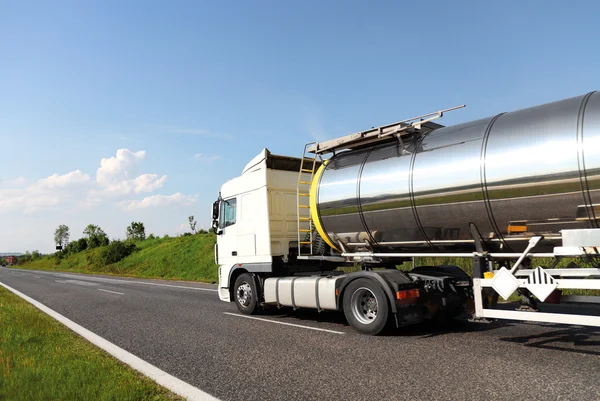
The Nigerian Midstream and Downstream Petroleum Regulatory Authority (NMDPRA) has announced a ban on 60,000-litre fuel tankers operating on Nigerian roads, set to take effect on March 1, 2025. This decision aims to reduce the increasing number of road accidents involving heavy-duty petroleum tankers.
Key Decision to Curb Road Accidents
Ogbugo Ukoha, NMDPRA Executive Director, Distribution Systems, Storage, and Retailing Infrastructure, made the announcement in Abuja during a press briefing on Wednesday. He stated that the regulatory body, in collaboration with key stakeholders, has resolved to enforce stricter measures to ensure the safe transportation of petroleum products.
“The first stakeholder’s technical committee met today to finalize timelines for 10 resolutions aimed at reducing truck-in-transit incidents and fatalities,” Ukoha said.
Consensus Among Stakeholders
The decision was reached after deliberations involving critical agencies, including:
- Department of State Services (DSS)
- Federal Fire Service
- Federal Road Safety Corps (FRSC)
- National Association of Road Transport Owners (NARTO)
- National Union of Petroleum and Natural Gas Workers (NUPENG)
- Standards Organisation of Nigeria (SON)
- Depot and Petroleum Products Marketers Association of Nigeria (DAPPMAN)
- NMDPRA
Under the new regulation, fuel tankers exceeding 60,000 litres in axle load will no longer be allowed to load at any depot nationwide.
“For the first time, all stakeholders reached a consensus, and we are committed to working together to ensure the safe transportation of petroleum products across the country,” Ukoha added.
Addressing Concerns Over Fuel Quality
Ukoha also addressed concerns about the quality of petroleum products in circulation, dismissing social media claims as bogus, misleading, and unscientific.
He reassured Nigerians that all locally refined and imported fuel products meet strict regulatory standards before distribution.
“Before any petroleum product is distributed in Nigeria, accredited laboratories conduct rigorous testing to ensure compliance with the required specifications. Only products that pass these tests are permitted for sale,” he explained.
Petroleum Industry Compliance with Regulations
NMDPRA remains committed to ensuring that all petroleum products comply with the Petroleum Industry Act (PIA) 2021 and Standards Organisation of Nigeria (SON) regulations. These standards cover key parameters such as:
- Sulfur content: Controlled to prevent corrosion and environmental pollution.
- Research Octane Number (RON): Ensures optimal engine performance and efficiency.
- Oxygenate levels: Enhances fuel quality for improved engine functionality.
- Color coding: Helps differentiate fuel types and prevents misidentification.
Ukoha emphasized that hydrocarbon products naturally vary in composition, but they must fall within acceptable limits to be considered compliant.
Nigeria’s Fuel Supply and Local Refinery Contributions
Following the removal of fuel subsidies in May 2023, Nigeria’s daily Premium Motor Spirit (PMS) consumption dropped from an average of 66 million liters to 50 million liters. However, local refineries currently contribute less than 50% of the total daily supply.
“Oil Marketing Companies (OMCs) that own refineries in Nigeria have not imported any PMS in 2025. The shortfall is being sourced through imports, ensuring that the country has sufficient petroleum products,” Ukoha clarified.
Ensuring Uninterrupted Fuel Supply
NMDPRA is working diligently to prevent fuel scarcity by ensuring that importation bridges the supply gap. The agency continues to monitor the market dynamics to maintain price transparency and availability across the country.
With the enforcement of the 60,000-litre tanker ban and stricter compliance measures, Nigeria is taking significant steps toward road safety, fuel quality assurance, and sustainable energy distribution.
